Reef corals and fish in the shallow water near Menjangan Island, Northwest of Bali, Indonesia
Click on image for full size
Courtesy of Lisa Gardiner
Hope for the World’s Coral Reefs?
News story originally written on December 20, 2002
After many years of damage, scientists report that coral reefs in several parts of the world have started to recover during 2002!
The reefs with improving health are located in areas that are protected from damaging activities, such as too much fishing, pollution, and sand falling on top of the reefs, which will clog the coral animals, preventing them from eating.
Unfortunately, not all reefs have better health. Many reefs around the world continue to suffer. The scientists also report that 27% of the world’s reefs have been lost and another 14% are expected to be destroyed in the next 10 to 20 years. These coral reefs may suffer because of local threats, like too much fishing or pollution in the ocean water, but they are also threatened by global climate change.
Global climate change is the major reason for a coral health problem called bleaching. Bleaching is a process that turns coral white when the algae that live within the coral’s body are released out into the ocean water. A reef that has bleached is not dead but the coral animals become very weak without the algae. More than 400 coral reefs were bleached during the year 2002. Corals will bleach if the seawater is too warm or not salty enough, when there is too much sunlight or too many toxins.
Last modified December 20, 2002 by Lisa Gardiner.
You might also be interested in:
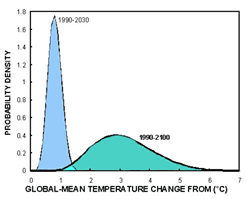
Recently, scientists at the U.S. National Center for Atmospheric Research have shown that there is a 90% chance that global temperatures will rise 3-9 degrees Fahrenheit over the next 100 years. This is
...more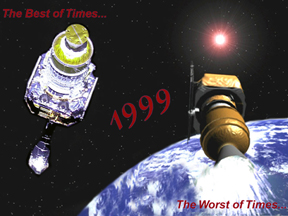
It was another exciting and frustrating year for the space science program. It seemed that every step forward led to one backwards. Either way, NASA led the way to a great century of discovery. Unfortunately,
...more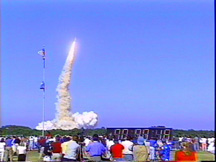
The Space Shuttle Discovery lifted off from Kennedy Space Center on October 29th at 2:19 p.m. EST. The weather was great as Discovery took 8 1/2 minutes to reach orbit. This was the United States' 123rd
...more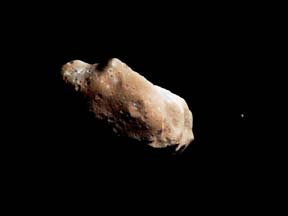
A moon was discovered orbiting the asteroid, Eugenia. This is only the second time in history that a satellite has been seen circling an asteroid. A special mirror allowed scientists to find the moon
...more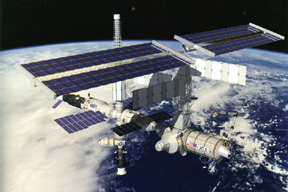
Will Russia ever put the service module for the International Space Station in space? NASA officials want an answer from the Russian government. The necessary service module is currently waiting to be
...more
A coronal mass ejection (CME) happened on the Sun early last month. The material that was thrown out from this explosion passed the ACE spacecraft. The SWICS instrument on ACE has produced a new and very
...more
J.S. Maini of the Canadian Forest Service called forests the "heart and lungs of the world." This is because forests filter air and water pollution, absorb carbon dioxide, release oxygen, and maintain
...more















